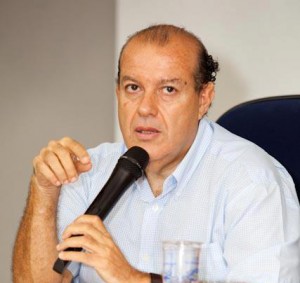During Habitat3 – the United Nations Conference on Housing and Sustainable Urban Development – that took place on October 2016 in Quito, Ecuador, the New Urban Agenda (NUA – the Conference’s final declaration) brought 175 paragraphs outlining the global standards for the future of urban sustainable development in all human settlements for the next 20 years. During a long advocacy and negotiation process, the Global Platform for the Right to the City (GPR2C), a movement of individuals and organizations that advocate for the recognition and adoption of the Right to the City in the implementation of public policies, played a key role in the effort to make the Right to the City be mentioned for the first time in an UN agreement.
In this interview Nelson Saule*, from Polis Institute and member of the GPR2C, talks about the next steps towards the implemention of the Right to the City and the new challenges ahead for the Global Platform for the Right to the City.
Now that the Right to the City has been incorporated into the NUA, what are the current challenges and necessary work towards strengthening and implementing the Right to the City worldwide?
Nelson – A major challenge today is to connect groups, networks and institutions from all fields that take the Right to the City as an a strategic guideline for the implementation of the New Urban Agenda. It is therefore essential to support and strengthen the initiatives of regional and national platforms for the the Right to the City.
Another challenge is the need for a continuous effort to raise awareness on the issue, as well as training and dissemination of the meaning of the Right to the City and its relevant role in the implementing of the New Urban Agenda for the development of more just, inclusive, sustainable and democratic cities.
We need to continue working in international and regional forums and processes that can increasingly expand the number of people, organizations, institutions, cooperation agencies, national and local governments that are committed to the Right to the City.
What are the main challenges for the Global Platform for the Right to the City today?
Nelson – The recognition of the Right to the City in the New Urban Agenda is a new starting point for the work that has been developed in the last two years by the GPR2C.
Another important initiative is to have a joint action with international human rights bodies – such as the High Commission, Councils, Special Rapporteurs – to consider the Right to the City as a reference in the field of human right and as an indicator for the monitoring of human rights commitments made by the countries in cities and human settlements.
You’ve been talking about “building a narrative for the Right to the City in the New Urban Agenda”. What does that mean and what are the next steps?
Nelson – The vision of the Right to the City built by the Global Platform during the Habitat III process has been successfully incorporated in the NUA; therefore, the initiatives that countries and cities need develop have to work with this concept in the promotion of the New Urban Agenda. The next steps in the first semester of 2017 are the production of different types of materials, articles, magazines, and manuals on the implementation of the New Urban Agenda that bring this narrative.
What is the importance of “mapping the organizations, spaces and actions” committed to the Right to the City worldwide?
Nelson – It is relevant to produce knowledge about cases of implementation of the Right to the City that can become references and contribute to countries and cities’ development of new initiatives for the implementation of the New Urban Agenda.
Lawyer, Urban Law professor of the Post Graduate Program in Law from University Catholic of São Paulo. Coordinator of the Right to the City Area in “Polis Institute of Studies, Training and Assistance in Social Policies”, where he develops advocacy activities, assistance, studies and research on the following subjects: human rights, specially right to housing and to the city, urban reform, urban law, urban and housing policies. On behalf of Polis Institute, Nelson is coordinator of the Global Platform the Right to the City and member of the National Cities Council, a collegiate body linked to the Ministry of the Cities in Brazil.





